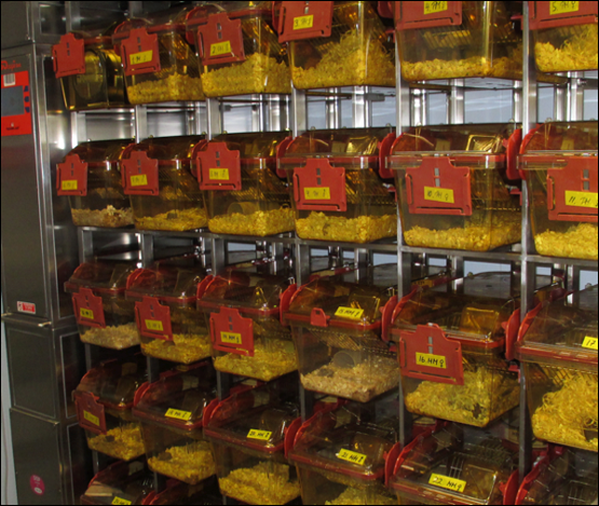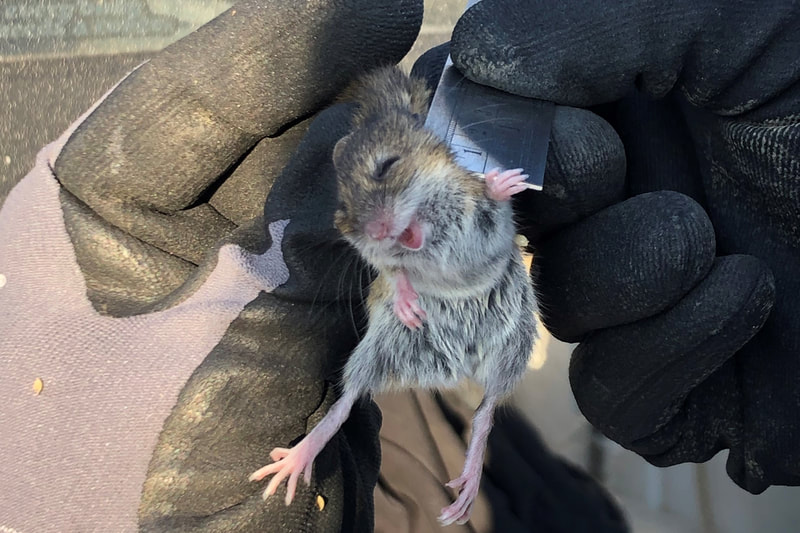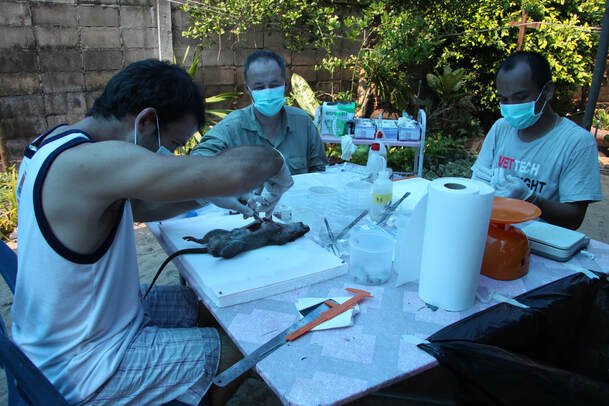Maintenance and Transmission of Rodent-borne Pathogens
Due to their high abundance in nature, amenability to trapping and sampling, and host role for a range of well-characterized parasites and pathogens, rodents are an important model to investigate fundamental concepts in wildlife disease ecology. At the same time, rodent species are a major source of zoonotic pathogens, such as hantaviruses, orthopoxviruses, and arenaviruses, which have direct implications for human health. In order to prevent human exposure to these pathogens, we must understand their dynamics in nature.
We use rodent systems to investigate infection maintenance and transmission in wildlife, and how anthropogenic environmental modifications, such as land use changes and food provisioning, influence these processes. Diverse methods are employed, including molecular studies, laboratory infection experiments, and longitudinal monitoring and manipulations of wild populations. A prominent model for our research is the bank vole-Puumala hantavirus system in Europe, a zoonotic system that causes hundreds to thousands of usually mild annual human cases each year. This host-virus system also provides a way to understand severe and difficult to study hantaviruses in other locations, such as Sin Nombre hantavirus, which is primarily carried by deer mice in the United States.



